Related Research Articles
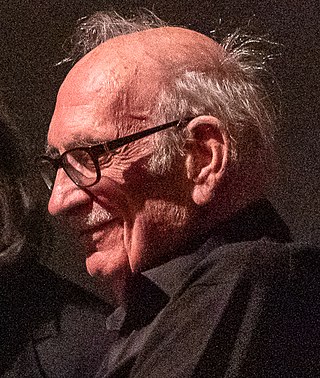
George Henry Crumb Jr. was an American composer of avant-garde contemporary classical music. Early in his life he rejected the widespread modernist usage of serialism, developing a highly personal musical language which "range[s] in mood from peaceful to nightmarish". Crumb's compositions are known for pushing the limits of technical prowess by way of frequent use of extended techniques. The unusual timbres he employs evoke a surrealist atmosphere which portray emotions of considerable intensity with vast and sometimes haunting soundscapes. His few large-scale works include Echoes of Time and the River (1967), which won the 1968 Pulitzer Prize for Music, and Star-Child (1977), which won the 2001 Grammy Award for Best Contemporary Classical Composition; however, his output consists of mostly music for chamber ensembles or solo instrumentalists. Among his best known compositions are Black Angels (1970), a striking commentary on the Vietnam War for electric string quartet; Ancient Voices of Children (1970) for a mixed chamber ensemble; and Vox Balaenae (1971), a musical evocation of the humpback whale, for electric flute, electric cello, and amplified piano.
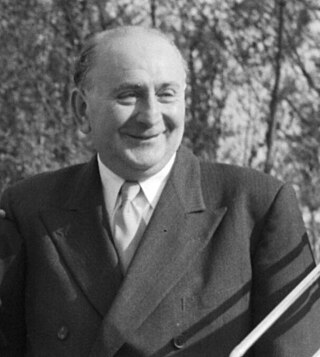
Vilém Tauský CBE was a Czech conductor and composer who, from the advent of the Second World War, lived and worked in the UK, one of a significant group of émigré composers and musicians who settled there.
Peter Racine Fricker was an English composer, among the first to establish his career entirely after the Second World War. He lived in the US for the last thirty years of his life. Fricker wrote over 160 works in all the main genres excepting opera. He was a descendant of the French playwright Racine.
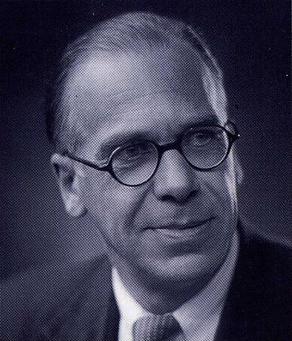
William Alwyn, was an English composer, conductor, and music teacher.

Sir James Loy MacMillan, TOSD is a Scottish classical composer and conductor.
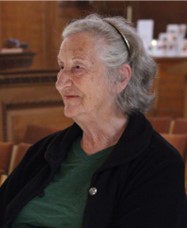
Thea Musgrave CBE is a Scottish composer of opera and classical music. She has lived in the United States since 1972.
Thomas Wilson CBE FRSE was an American-born Scottish composer, a key figure in the revival of interest in Scottish classical music after the second world war.

The Elder Conservatorium of Music, also known as "The Con", is Australia's senior academy of music and is located in the centre of Adelaide, the capital of South Australia. It is named in honour of its benefactor, Sir Thomas Elder (1818–1897). Dating in its earliest form from 1883, it has a history in professional training for musical performance, musical composition, research in all fields of music, and music education. The Elder Conservatorium of Music and its forerunners have been parts of the University of Adelaide since the early 1880s. The current Director is Professor Anna Goldsworthy.
Arnold Atkinson Cooke was a British composer, a pupil of Paul Hindemith. He wrote a considerable amount of chamber music, including five string quartets and many instrumental sonatas, much of which is only now becoming accessible through modern recordings. Cooke also composed two operas, six symphonies and several concertos.
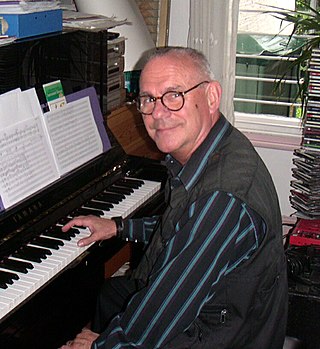
John White was an English experimental composer and musical performer. He invented the early British form of minimalism known as systems music, with his early Machines.

The Gardiner Chair of Music at the University of Glasgow was founded in 1928 and endowed by the gift of William Guthrie Gardiner and Sir Frederick Crombie Gardiner, shipowners in Glasgow. The chair was previously a joint appointment with the directorship of the Scottish National Academy of Music, although this practice ceased on the retirement of Sir Ernest Bullock in 1952. The current professor is John Butt.
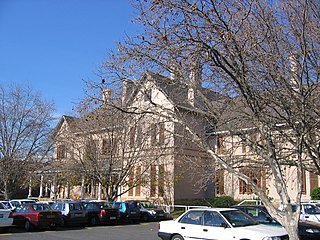
The South African College of Music, abbreviated as SACM, is a department of the Faculty of Humanities at the University of Cape Town. It is located on the university's Lower Campus in Rondebosch, Cape Town.
David Wynne was a prolific Welsh composer, who taught for many years at Cardiff University and wrote much of his best-known music in retirement.
Walter Leigh was an English composer. Leigh is best known for his Concertino for harpsichord and string orchestra, written in 1934. Other famous works include the overture Agincourt and The Frogs of Aristophanes for chorus and orchestra. He wrote music for documentary films and there is an unfinished sketch for a symphony.

Michael John Hurd was a composer, teacher and author, principally known for his dramatic cantatas for schools and for his choral music.

Erik William Chisholm was a Scottish composer, pianist, organist and conductor sometimes known as "Scotland's forgotten composer". According to his biographer, Chisholm "was the first composer to absorb Celtic idioms into his music in form as well as content, his achievement paralleling that of Bartók in its depth of understanding and its daring", which led some to give him the nickname "MacBartók". As composer, performer and impresario, he played an important role in the musical life of Glasgow between the two World Wars and was a founder of the Celtic Ballet and, together with Margaret Morris, created the first full-length Scottish ballet, The Forsaken Mermaid. After World War II he was Professor and Head of the South African College of Music at the University of Cape Town for 19 years until his death. Chisholm founded the South African College of Music opera company in Cape Town and was a vital force in bringing new operas to Scotland, England and South Africa. By the time of his death in 1965, he had composed over a hundred works.

Graham Waterhouse is an English composer and cellist who specializes in chamber music. He has composed a cello concerto, Three Pieces for Solo Cello and Variations for Cello Solo for his own instrument, and string quartets and compositions that juxtapose a quartet with a solo instrument, including Piccolo Quintet, Bassoon Quintet and the piano quintet Rhapsodie Macabre. He has set poetry for speaking voice and cello, such as Der Handschuh, and has written song cycles. His compositions reflect the individual capacity and character of players and instruments, from the piccolo to the contrabassoon.

Lyell Richard Cresswell was a New Zealand composer of contemporary classical music. He was the younger brother of philosopher Max Cresswell. Cresswell studied in Wellington, Toronto, Aberdeen and Utrecht and lived and worked in Edinburgh from 1985 on. Although he lived more than half his life away from New Zealand, he regarded himself as a New Zealander.
Malcolm Lipkin was an English composer.
David Godfrey Gow was an English composer and teacher.
References
- ↑ Biographical Dictionary of Australian Composers (Australian Music Centre, 1996), p. 99.
- ↑ International Who's Who in Music and Musicians' Directory (Melrose Press, 1985), p. 355.
- ↑ Graham Hair biography, Scottish Voices
- ↑ Michael Moss, Moira Rankin and Lesley Richmond, Who, Where and When: The History & Constitution of the University of Glasgow (University of Glasgow, 2001), pp. 116-117.
- ↑ Graham Hair: Piano Music, Lyrita SRCD 436 (2024), review by Martyn Strachan, British Music Society